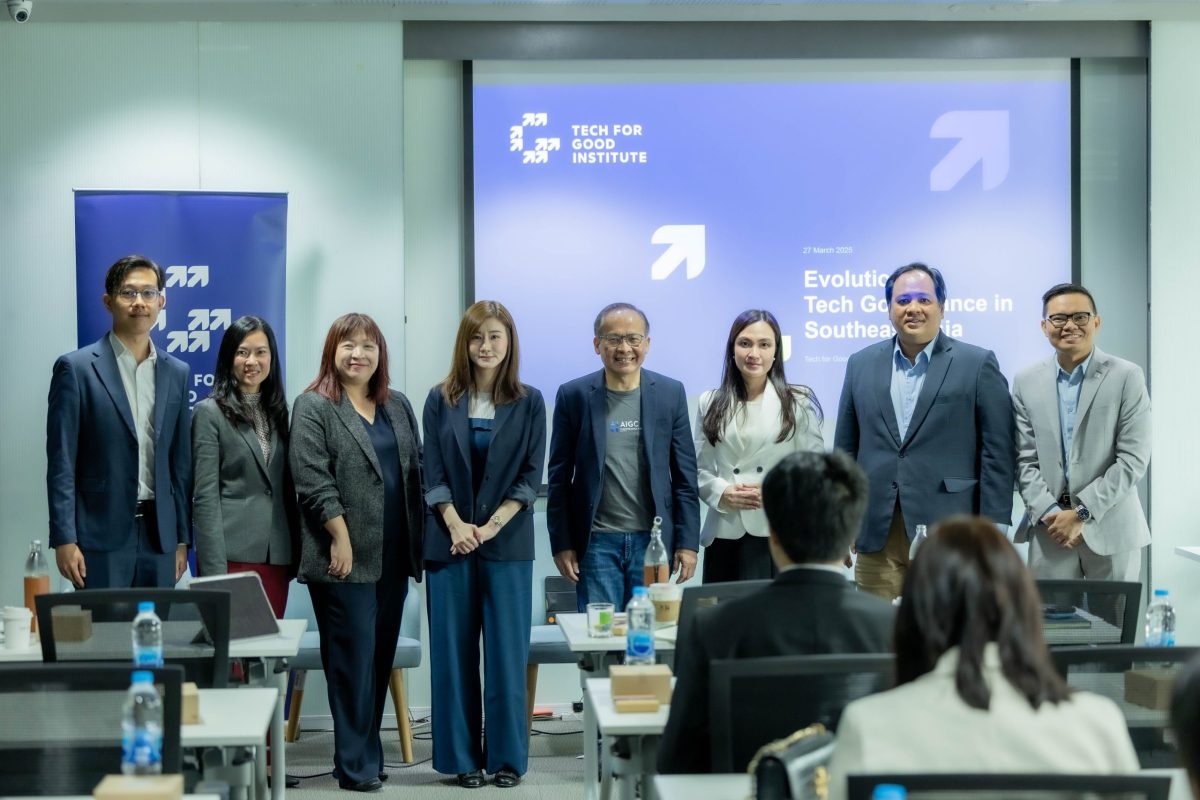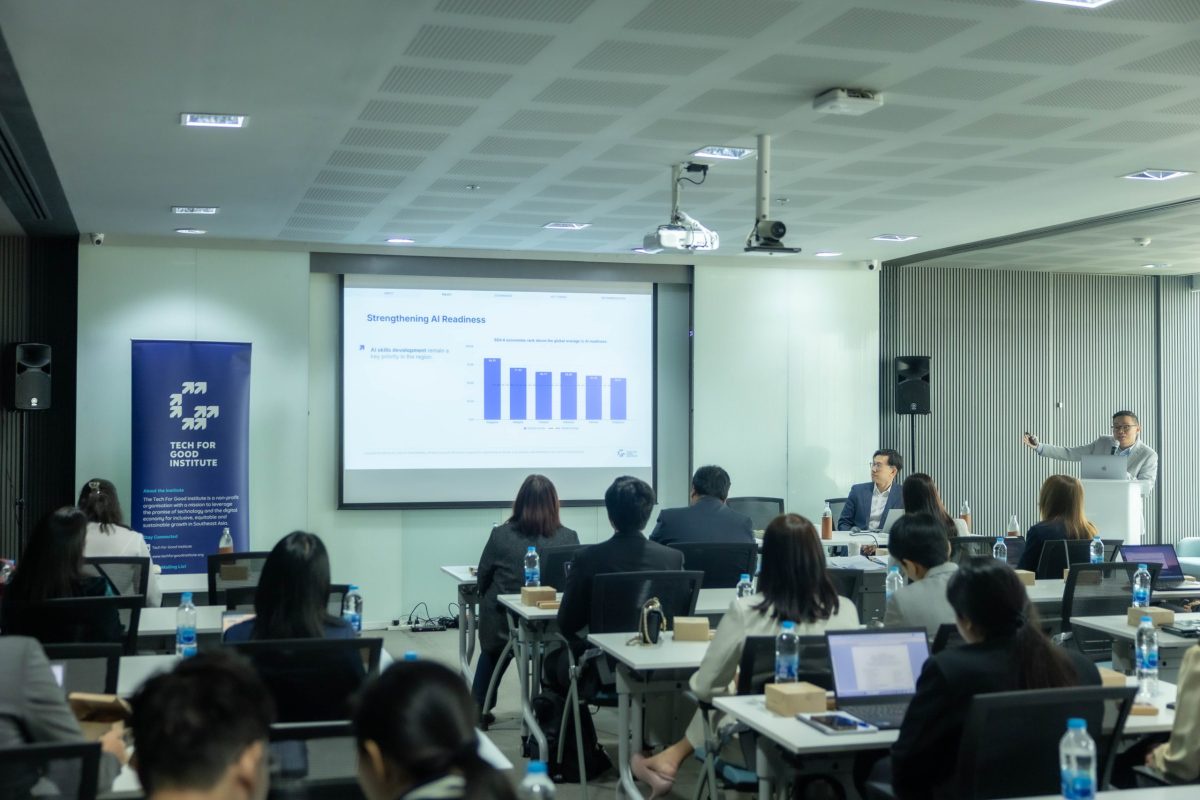Thailand underscores commitment to responsible innovation, ethical AI, and inclusive digital growth
The Office of National Higher Education Science Research and Innovation Policy Council (NXPO), in partnership with the Tech for Good Institute (TFGI) of Singapore, successfully hosted a high-level policy forum titled "Tech Governance in Thailand: Forward-Looking Policies for Sustainable Growth." The event brought together leading policymakers, industry experts, and academics to explore emerging trends in digital governance, with a special focus on Thailand's recent policy developments.
The forum also marked the launch of the second edition of TFGI's landmark report, The Evolution of Tech Governance in Southeast Asia-6, offering a comprehensive analysis of policy and regulatory shifts in six countries: Indonesia, Malaysia, Singapore, the Philippines, Thailand, and Vietnam.
"Governments worldwide are learning to innovate responsibly. The mindset is shifting from 'move fast and break things' to 'move faster, but fix things,'" said Dr. Ming Tan, Executive Director of TFGI. "This collaboration with NXPO enables us to connect the dots between regional trends and national priorities."
Thailand's Digital Vision: Growth, Governance, and Global Leadership
As part of Thailand's digital transformation, the government is focusing on both advancing the digital economy and safeguarding the digital society. The country will host the Asia-Pacific UNESCO Global Forum on the Ethics of AI in June 2025, highlighting its leadership in ethical and responsible AI development.
Thailand is also implementing ambitious national initiatives, including the "MHESI for AI" programme, which aims to produce 30,000 AI professionals in three years and ensure that 90% of university graduates have basic AI literacy. The creation of a Cybercrime Case Division in the Criminal Court further reinforces the country's commitment to digital safety and trust.
"NXPO plays a crucial role in shaping policies that strike a balance between enabling innovation and maintaining responsible governance," said Dr. Karantarat Nakwa, Assistant to the President of NXPO. "With technologies like AI, blockchain, and cloud computing reshaping economies, Thailand is positioning itself as a regional hub for innovation and sustainable growth."
Expert Panel Highlights Opportunities and Policy Imperatives
A key feature of the event was a panel discussion titled "Forward-Looking Policies of Tech Governance in Thailand," featuring prominent voices from across sectors : Dr. Sak Segkhoonthod, Senior Advisor, ETDA, Miss Kasama Kongsmak, Executive Vice President, DEPA, Dr. Saliltorn Thongmeensuk, Senior Researcher, TDRI, Mr. Jirawat Poomsrikaew, Thai Digital Platform Trade Association, Mr. Anont Tanaset, Policy Specialist, NXPO and Mr. Keith Detros, Programme Lead, TFGI
Speakers emphasized the importance of tailored, context-specific policy solutions to support Thailand's growing digital ecosystem. Policy priorities include AI governance, digital platform regulation, cyber resilience, and the promotion of startups and SMEs.
Regional Cooperation Through ASEAN DEFA
Looking ahead, participants highlighted the potential of the upcoming ASEAN Digital Economy Framework Agreement (DEFA) to foster greater regulatory interoperability across the region. While governance models differ, shared priorities such as data protection, cybersecurity, and trust provide a foundation for meaningful collaboration.
The dialogue concluded with a unified message: thoughtful, forward-looking governance—both nationally and regionally—will be key to enabling Southeast Asia's digital future.
Source: NXPO

